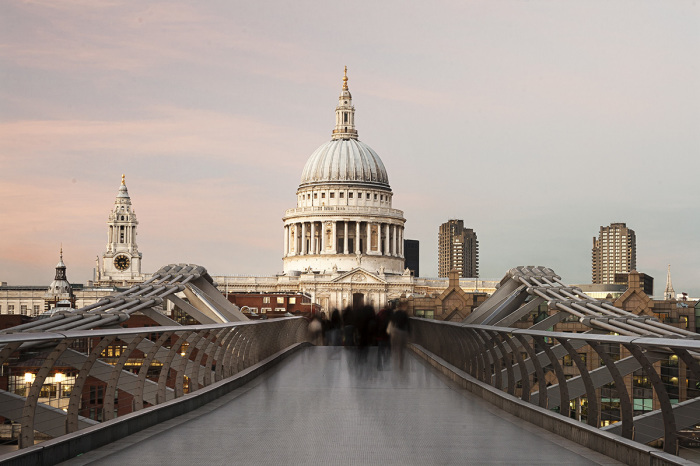Christians are now a minority in England and Wales: census

For the first time since 1801, when the United Kingdom took its first census, less than half of the population identify as “Christian,” while the share of individuals who say they have no religion has swelled by millions, the latest data from their census show.
The data published Tuesday by the U.K.’s Office for National Statistics show that only 46.2% or 27.5 million of the country’s more than 67 million people say they are Christian. In 2011, when the last census was done, 59.3% of the population or 33.3 million, people described themselves as Christian.
For individuals in the U.K. who are religious, however, most identify with the Christian faith.
As in the United States, the number of people with no faith in the U.K. has been growing with the decline of Christianity. Some 22.2 million people or 37.2% of the population reported that they had “no religion.” Ten years earlier, only 14.1 million people or 25.2% of the population, said they had “no religion.”
The census data also showed that the population of Muslims and Hindus in the U.K. also grew. Muslims increased their population in the U.K. from 2.7 million in 2011 to 3.9 million in 2021. Hindus increased from 818,000 to 1 million.
Researchers suggested that the changing religious climate in the U.K. could be attributed to many things.
“There are many factors that may be contributing to the changing religious composition of England and Wales, such as differing patterns of ageing, fertility, mortality and migration,” researchers said in the report. “Changes may also be caused by differences in the way individuals chose to answer the religion question between censuses.”
While the question about religion in the census is voluntary, 56 million or 94% of residents opted to answer the question in 2021, which is an increase of the 52.1 million or 92.9 % of the population that chose to answer the question in 2011.
Professor Linda Woodhead, from King's College London, told the BBC that when someone selects “no religion” on the census, it shouldn’t be interpreted as they have no belief.
"Some will be atheist, a lot will be agnostic — they just say, 'I don't really know' — and some will be spiritual and be doing spiritual things," she said.
Responding to the results of the census, Archbishop of York, the Most Rev. Stephen Cottrell, said the U.K. had "left behind the era when many people almost automatically identified as Christian."
"It's not a great surprise that the census shows fewer people in this country identifying as Christian than in the past, but it still throws down a challenge to us not only to trust that God will build His Kingdom on Earth but also to play our part in making Christ known,” he said, according to The Telegraph.
He added, "We have left behind the era when many people almost automatically identified as Christian, but other surveys consistently show how the same people still seek spiritual truth and wisdom and a set of values to live by."
Non-Christians argued, however, that the census data bolstered their contention that policies in areas such as education need to be revised to remove bias against people who aren’t Christians.
‘Wales is officially the least religious part of the U.K., and while that’s not a new development, it is something that politicians in Wales are overdue to properly address in law and public policy,” Wales Humanists coordinator Kathy Riddick said in a statement.
“Thankfully in navigating these changes, Wales has a strong tradition of supporting freedom of religion or belief to draw on, from disestablishment over 100 years ago to the creation of the most inclusive curriculum in the U.K. just last year,” she said. “There are still many areas where being non-religious in Wales comes with disadvantages. From hospital chaplaincy, which fails to include any non-religious support across Wales, to school assemblies where daily acts of Christian worship remain mandatory, and in many national events where religious groups are represented but non-religious beliefs are not.”
Yet, as Cottrell noted, it's the church and Christian charities that often provide support and assistance for those most in need, regardless of their faith or lack thereof.
"This winter — perhaps more so than for a long time — people right across the country, some in desperate need, will be turning to their local church, not only for spiritual hope but practical help," he said.
"We will be there for them, in many cases, providing food and warmth. And at Christmas millions of people will still come to our services."
Contact: leonardo.blair@christianpost.com Follow Leonardo Blair on Twitter: @leoblair Follow Leonardo Blair on Facebook: LeoBlairChristianPost




























